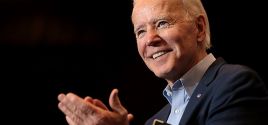Camera project provokes concernsMiami HeraldMar. 27, 2006 |
Popular 
Biden Commutes Sentences of 37 of 40 Federal Death Row Inmates - Excludes Robert Bowers, Dylann Roof

Putin Accuses 'Ethnic Jews' of Tearing Russian Orthodox Church Apart

U.S. 'Shoots Down Own Jet' Over Red Sea in 'Friendly Fire Incident'

Ohio Senate Passes Bill Aimed at Outlawing Criticism of Israel, Criminalizing Gospel

Saudi National Rams Car Into Germans at Christmas Market in Suspected Terrorist Attack [UPDATED 2X]
 The stark images of suicide bombers in London last year raised the profile of police-run, round-the-clock surveillance systems -- and now Miami wants its own. Miami police have begun planning installation of a citywide closed-circuit video surveillance system, one that has already raised fierce concerns from civil libertarians and privacy advocates worried about overly intrusive government. Already entrenched in the United Kingdom, these security systems have gained a following among local officials and law enforcement authorities in New York, Chicago, Baltimore and other cities. This month, Miami city administrators received a nearly $1 million proposal from a Virginia technology company for an initial system that would include enough portable and fixed cameras to monitor at least one business corridor. City leaders envision the system, hooked into the city's emergency dispatch center, starting downtown and along Brickell Avenue, eventually expanding to neighborhoods such as Coconut Grove and Liberty City. ''Obviously, we will have a heck of a lot better coverage when police cannot be there physically,'' Miami City Manager Joe Arriola said. They say it will also deter crime, aid investigations and even monitor the flow of Miami's increasingly traffic-choked roads. The American Civil Liberties Union charges that such systems can amount to wasted resources, pushing crime to areas uncovered by cameras, invading privacy and even inviting police voyeurism. ''If we're going to convert the Magic City into the Surveillance City, we'd better have a good payoff,'' said Howard Simon, the ACLU's Florida director, who said the effectiveness of a citywide security system remains unclear. Though an overall price for the system has not been determined, it would likely be funded by federal dollars through the Department of Homeland Security. The Miami Police Department has not ruled out using city money or other grants. The initial proposal from the Virginia company, GTSI Corp., has not been accepted yet. London's system, which encompasses some 6,000 cameras, is considered among the most extensive in the world. Miami Police Chief John Timoney said he long opposed such video systems until he heard firsthand from counterparts in London how it helped identify the bombers. Later, while at a training seminar in Belfast, Northern Ireland, Timoney watched in a police operations center how the system helped police combat violent protesters. ''It was pretty impressive stuff,'' Timoney said. ``It helped convince me more than ever.'' While the United Kingdom's system has generally received favorable reviews, results of its effect have been mixed. It has been credited with helping curb terrorism associated with the Irish Republican Army. However, a government-commissioned study released last year found most security systems in England and Wales failed to reduce crime. In the United States, many transportation systems and police departments, flush with post-Sept. 11 federal homeland security money, have begun opting for surveillance cameras. This week, New York police unveiled a plan to install more than 500 cameras in high-crime areas in lower Manhattan. Dallas and Chicago are obtaining systems. In Baltimore, the city has installed more than 200 fixed surveillance cameras in high-crime areas, housing projects and markets. Police say it has been a success -- last month, a 16-year-old caught on a police video as he fled a homicide scene pleaded guilty to second-degree murder. ''It's been working pretty well for us,'' said Baltimore Lt. Matthew Bauler. Miami-Dade County has seen less-than-effective incarnations before. In 1984, a surveillance system on Lincoln Road in Miami Beach was dismantled because the equipment often failed, not enough volunteers could be found to monitor screens and cameras never actually captured any crimes. Similarly, a four-camera system along Flagler Street in downtown Miami failed in the late 1980s. Supporters say improvements in technology -- cameras are cheaper, digital and more powerful -- have helped renew interest nationwide in video systems. Brian Jenkins, a security expert with the RAND Corporation, said security systems will not stop a determined suicide bomber, or spontaneous crimes. But he said it can curb gang activity and drug sales, and can also help police effectively allocate manpower in the event of a major event such as a terrorist attack. ''It's really no different than a cop on the beat. In a sense, they're another pair of eyes,'' Jenkins said. Miami police brass say technology will also curb concerns of voyeurism -- views of residential windows will be blacked out using software. Nevertheless, the ACLU has its concerns. Group leaders fear the Big Brother effect, with police ogling women on streets and monitoring reading material. They also worry about oversight -- who will monitor the monitors? -- and how long digital recordings will be kept under Florida's liberal public records law (police say, like emergency dispatch calls, they would normally be discarded after 90 days unless kept for evidence). Among the organization's most pressing concerns: There has been scant public debate about the proposed surveillance system. In Philadelphia, the city council this week set a referendum for the spring so voters could decide whether to support a police surveillance system. In contrast, the issue has yet to come before the Miami City Commission, although City Manager Arriola told The Miami Herald he anticipated addressing it in the future. Said the ACLU's Simon: ``I think the City Commission has got to step up to the plate and require that there be hearings.'' |



